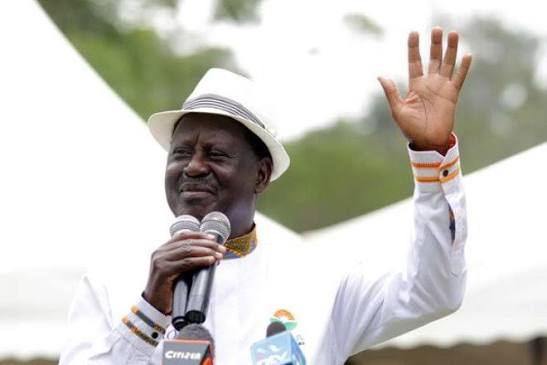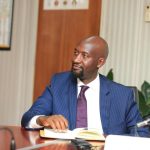I was barely ten when my father whispered the name Raila Odinga like a secret spell. We were huddled around a flickering radio in our dusty living room in Kisumu, listening to news that felt more like prophecy than fact. “He’s been arrested again,” my father said, eyes heavy with both pride and fear. “But one day, this country will thank him.”
Years later, I would understand the weight of those words.
Kenya in the 1980s was a country silenced by fear. President Daniel arap Moi ruled with an iron fist, and the constitution had been amended to make Kenya a de jure one-party state. Dissent was not just discouraged—it was criminal. The air was thick with suspicion. Neighbors stopped trusting each other. Journalists disappeared. And yet, in the midst of this suffocating silence, one man refused to be quiet.
Raila Amolo Odinga, son of Jaramogi Oginga Odinga, Kenya’s first Vice President, was no stranger to political resistance. But Raila was not content to live in his father’s shadow. He had his own fire, his own vision—a Kenya where ideas could clash without bloodshed, where ballots replaced bullets.
In 1982, Raila was accused of involvement in a failed coup attempt against Moi’s regime. He was detained without trial for six years. Six years. Imagine that. No court hearing. No formal charges. Just a cell and the hope that the world hadn’t forgotten you.
But Raila emerged from prison not broken, but reborn.
He joined forces with other reformists to form the Forum for the Restoration of Democracy (FORD). It wasn’t just a political party—it was a movement. A cry from the belly of a wounded nation. Raila and his allies demanded the repeal of Section 2A of the constitution, the clause that had made Kenya a one-party state.
Their voices were met with tear gas, batons, and bullets. But they kept shouting.
In 1991, after years of pressure, both internal and international, Moi relented. Section 2A was repealed. Kenya was once again a multiparty democracy.
It was a moment that felt like sunrise after a decade-long night.
Raila’s role in this transformation was undeniable. He had risked everything—his freedom, his safety, his family—for the dream of a pluralistic Kenya. And while others had also fought valiantly, it was Raila who became the face of resistance. The father of Kenya’s multiparty system.
But democracy is not a destination—it’s a journey. And Raila’s journey was far from over.
He contested multiple presidential elections, each more controversial than the last. In 2007, post-election violence claimed over 1,000 lives. Raila, who believed he had been robbed of victory, agreed to a power-sharing deal, becoming Prime Minister under President Mwai Kibaki.
It was a bittersweet compromise. But it showed Raila’s commitment to peace over power.
In 2010, Kenya adopted a new constitution—one that Raila had championed. It was another milestone in his lifelong quest to reshape Kenya’s political landscape.
Raila’s story is not one of unbroken triumph. He has lost elections. He has been betrayed. He has been mocked, vilified, and dismissed. But through it all, he has remained steadfast.
He is not perfect. No man is. But in a country where political loyalty often trumps principle, Raila has consistently chosen the harder path—the path of reform, resistance, and renewal.
Today, when young Kenyans speak of democracy, they do so with a vocabulary that Raila helped write. Multiparty politics. Devolution. Constitutional reform. These are not just abstract concepts—they are the fruits of decades of sacrifice.
Raila Odinga may never wear the presidential crown. But he wears something far more enduring—the mantle of a statesman who dared to dream of a freer Kenya and paid the price to make it real.
I met Raila once, briefly, at a rally in Kisumu. I was 22, fresh out of university, still drunk on idealism. I shook his hand and said, “Thank you for fighting for us.”
He looked me in the eye and replied, “Now it’s your turn.”
That moment stayed with me. Because democracy isn’t a gift—it’s a responsibility. And Raila Odinga didn’t just give us a system. He gave us a challenge: to keep fighting, keep questioning, keep building.
In the story of Kenya’s democracy, Raila Odinga is not just a chapter—he’s the spine. The man who refused to be silenced. The man who turned prison bars into stepping stones. The man who taught a nation that freedom is never free, but always worth the fight.
So when history asks, “Who fathered Kenya’s multiparty system?” the answer will echo from the hills of Kisumu to the corridors of Parliament
This post was created with our nice and easy submission form. Create your post!




